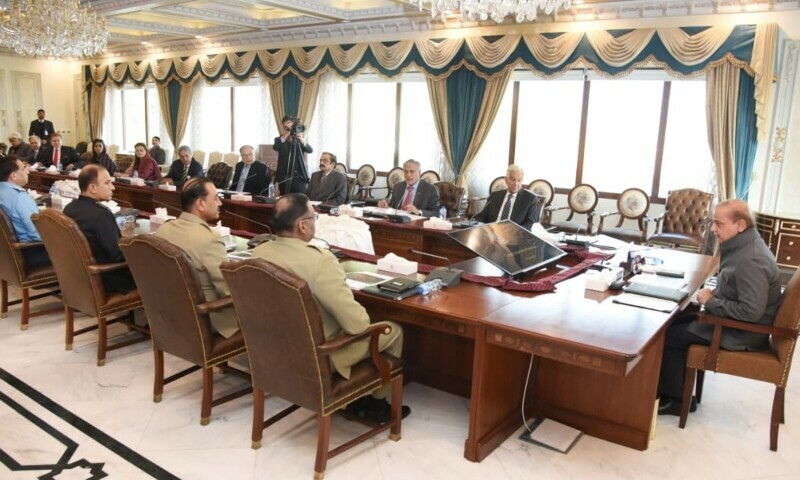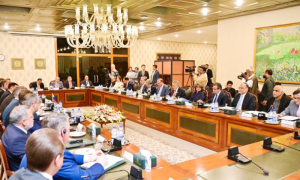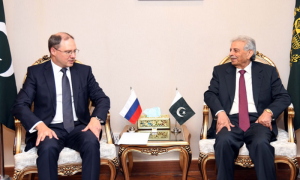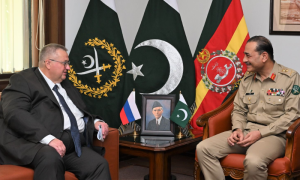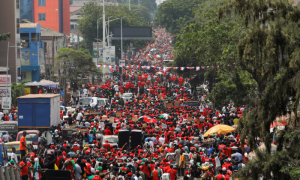ISLAMABAD: The National Security Committee (NSC), comprising civil and military leadership, has decided to continue and intensify the operation against terrorism in the country.
The civil-military top brass also agreed that no pressure would be accepted on important national affairs and resolved to foil all conspiracies against national security and integrity.
The 41st meeting of the NSC was held at the Prime Minister’s House under the chairmanship of Prime Minister Shehbaz Sharif, which lasted for two hours.
The NSC meeting was attended by the Chiefs of the three-armed forces, including the Chairman Joint Chiefs, Ministers of Information, Defence, Finance, Foreign Affairs, and Home Affairs.
The Director General of the Inter-Services Intelligence (ISI) Lt Gen Nadeem Anjum, gave a detailed briefing on the ongoing operations against terrorism and the country’s security situation.
According to local media reports, the NSC reiterated its zero-tolerance policy against terrorists, which would continue.
Finance Minister briefs NSC over economic situation
Finance Minister Ishaq Dar also briefed the NSC on the country’s economic situation. However, the detailed statement on the NSC meeting is yet to be issued.
The meeting was held at a time when the nation is facing serious economic and political crises compounded by the recent Supreme Court of Pakistan verdict on the Pakistan Tehreek-e-Insaf (PTI) petition challenging delay in elections in Punjab and Khyber Pakhtunkhwa.
The ruling coalition PDM has firmly opposed the verdict, which it believes is a minority verdict of 3-2 and should not be implemented.
A day before the NSC meeting, the National Assembly passed a resolution rejecting the three-member Supreme Court bench’s “minority” verdict on the Punjab elections.
It made it binding on PM Shehbaz and his cabinet not to implement the decision. The resolution noted that the National Assembly (NA) on March 28, in a resolution, had called on the Supreme Court (SC) to avoid “interfering” in political matters.
It also expressed concerns over the “undue judicial interference in political matters” and raised alarms over the formation of a controversial bench of the apex court and its decision to quickly close the case that prompted senior judge Justice Qazi Faez Isa to suspend “suo motu” hearings.
The National Assembly also aired fears that the “minority ruling” had given rise to political instability and paved the way for divisions in the federal units.









